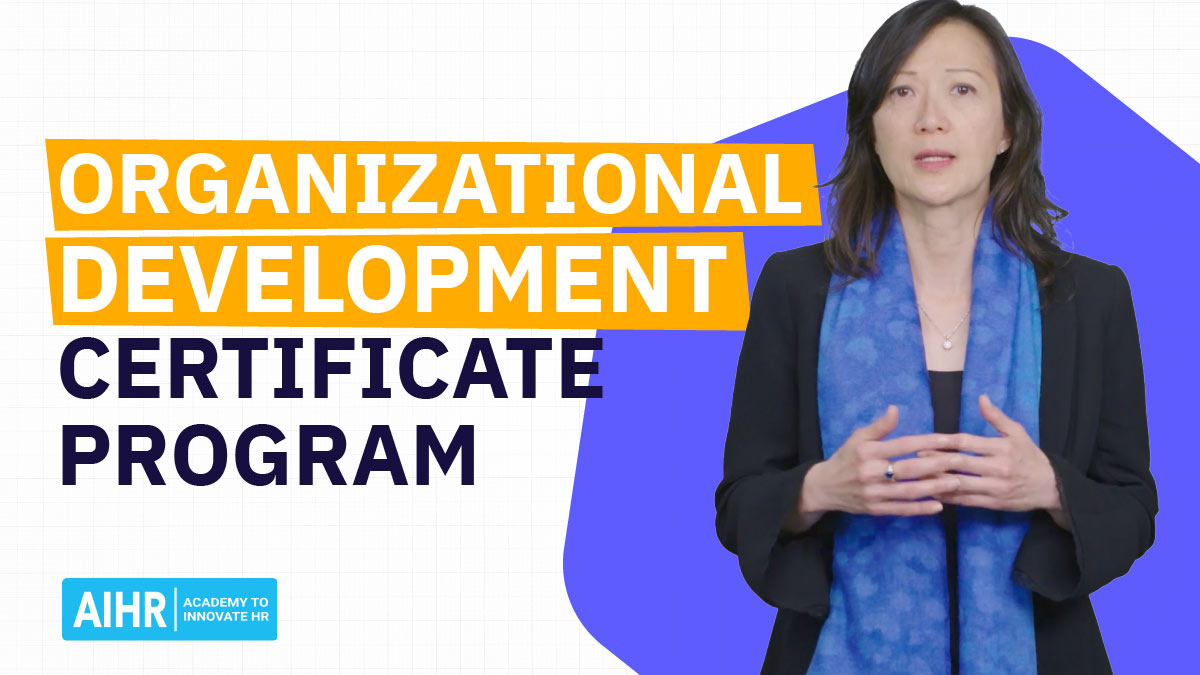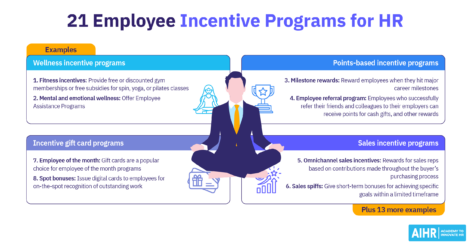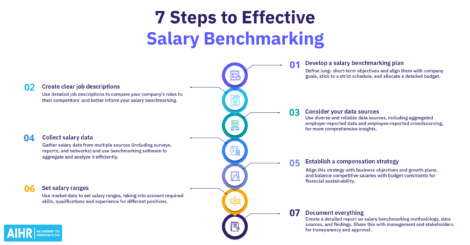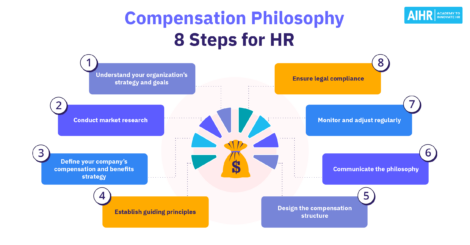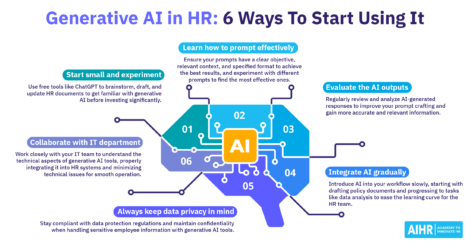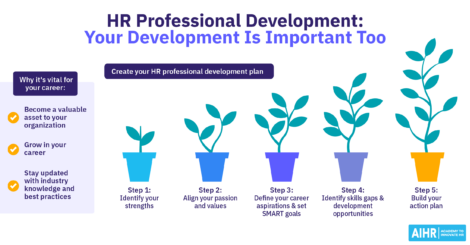Welcome to another episode of All About HR! This is the podcast & video series for all HR Professionals and business leaders who want to future-proof their organization and learn about the latest trends & insights from industry experts, CHROs, and thought leaders.
Welcome to the first episode of our two-part interview with Unilever’s Global Reward Counselor, Peter Newhouse. Peter is an expert on pay and a forward-thinking reward innovator.
Reward systems are the glue that keeps companies together, motivates employees, and boosts performance and commitment. What are the key elements of a future-proof reward system & how can you inspire exceptional performance and employee commitment? In this interview, we will dive deeper into the future of reward and its main characteristics: flexibility, personalization, and inclusivity.
We will discuss:
- Key element of a successful reward strategy
- Who are the “Plumbers of HR”?
- What is the role of reward in HR and today’s world?
- Awareness of the emotional aspect when talking about reward
And much more!
Stay tuned for Part 2 of our exciting conversation with Peter, where we will share more insights on leveraging data in reward, the importance of employee feedback, and the approach of employment for life!
Transcript:
Neelie Verlinden: Hi, everyone, and welcome to a brand new episode of all about HR. My name is Neelie and I’m your host today. As you can see, it is a special episode because it’s the first one that we’re actually recording in person. So today’s guest, as you can see, is already with me here in the studio, and it’s Peter Newhouse, the global reward counselor at uni-level. So I’m super excited that we are going to be able to have a conversation in person here together today. Hi, Peter, and welcome.
Peter Newhouse: It’s really good to be here. Thank you very much for the invitation.
Neelie Verlinden: Yeah, you’re very welcome. I’m super happy that you’re here. And that we can do this in person, as I already mentioned three times.
Peter Newhouse: So this is about the first time I’ve been out for six months, you know, so that’s kind of nice.
Neelie Verlinden: When I was preparing for our conversation today, I listened to a few of the podcasts you featured in. And there was something that I heard you say in one of them that was about how we reward professionals, they are in a way a bit like the plumbers of HR. I thought that was a fantastic analogy. And I really wanted to ask you, yeah, how did you get to that comparison?
Peter Newhouse: Yeah, well, a lot of experience, I think, you know, so yeah, we really are the plumbers of HR, you know. So when there’s a problem when there’s some kind of emergency, then the plumbers of HR get called out to fix the problem, we have a little kit bag of stuff that we do. And we have in there, lots of tools that we can apply to an emergency situation, most of which involves throwing money at a problem, you know, but we have lots of imaginative ways of throwing money at things. And that’s part of being a plumber of HR.
Neelie Verlinden: Nice. I also like the comparison with the toolbox. And I’m guessing that we’ll get back to that toolbox later.
Peter Newhouse: Yeah, the toolbox is really important. So every reward person has got a little kit bag of things that they’re good at doing. And that’s what you develop over the course of your career is that special little kid bag that you take around with you to fix problems.
Neelie Verlinden: Yes. And I imagine it’s also an always evolving kitbag, isn’t it, Peter.
Peter Newhouse: It gets bigger and bigger and bigger. But fortunately, we do get the opportunity to throw away some of the old tools and replenish them with new stuff. And that’s quite important too. Otherwise, you’re carrying around too much stuff.
Neelie Verlinden: Yeah. And it’s getting too heavy. Too heavy.
Peter Newhouse: Far too heavy
Neelie Verlinden: Absolutely. What do you believe is the role of reward in HR in the world of work today?
Peter Newhouse: Okay, that’s a big question. I think really the, you know, there’s several things I mean, I think, firstly, reward is about encouraging people to improve performance. And that can be individual performance, it can be company-wide performance, but performance is at the heart of reward. The second thing that really rewards is therefore his engagement, so what rewards should be able to do is to engage people in the organization, to help to keep them in the organization to motivate them to perform that kind of thing. So reward is the kind of glue that helps to keep the company together.
Neelie Verlinden: Yeah, so we’re here two main items, we have the performance and the engagement, which go hand in hand, by the way. Thank you, Peter. Now looking at a reward strategy, what would you say are some of the key elements for a successful reward strategy?
Peter Newhouse: Again, I think it comes back to improving performance and engagement. And we have you know, over many decades, you know, reward has built up a little kickback, you know, the kit bag of stuff that we carry around. And we have our reward building blocks that we tend to use. So we’ve got fixed paid benefits, we’ve got short term incentives, we have long term incentives. And typically what we do is we arrange those building blocks in various formations, to be attractive to various kinds of people in certain situations where we want to encourage particular behavior. So that’s really, you know, the reward strategy has got to be based on the way in which we deploy those building blocks for particular populations.
Neelie Verlinden: And there you already say something interesting. I think it’s for particular populations. I’m guessing that implies that there’s always a certain level of personalization involved there.
Peter Newhouse: Well, I think the level of personalization is lower than it should be. I think that there’s lots of opportunity for increased personalization. And I would go a long way in that direction. If I was to sort of think about future direction where we should be going with a reward. I think the answer to that is much higher levels of individualization. So at the moment because of various constraints, technology, and constraints of strategy, you know, we tend to have a one size fits all approach to sectors of the population. And we basically think that we know what’s good for them. And so we offer them certain sorts of rewards because we think that’s effective. That’s not necessarily borne out by any evidence. And it isn’t necessarily research. There’s lots of opportunity around personalization, individualization Yeah, let’s go. I think we should probably go back to the theme?
Neelie Verlinden: Yeah, definitely. I think we’ll come back to that a little bit later. But it’s good that you will get that we already get a little bit of a sneak peek into what you think could be very essential. In terms of the key elements, we have the fixed pay, we have the benefits, as you mentioned, and I wanted to ask you something about benefits. In particular, do you have some examples of flexible benefits that really, really will be key in the future?
Peter Newhouse: Well, I actually would like to extend flexibility far beyond just flexibility within benefits. I think lots of companies have experimented with flexible benefits, so you can exchange one benefit for another. But I’d go much further, I’d say okay, why can’t we actually have Variable And Fixed pay? For example, if I have a partner who has full Family Medical cover, then why should I also have to take full Family Medical cover because one of those covers isn’t necessary. If on the other hand, I’m a single person, and I’m bringing up children, I probably need more fixed income in and so it doesn’t mean I’m a low performer, if I don’t have a bonus, but I’d rather exchange that bonus for more regular fixed pay, because that’s what’s useful to me. So I would go much further than just say how we can flex within benefits, I’d say aquaflex across the entire range of the package. Because that seems to me to be more relevant to the individual, more inclusive, and more flexible.
Neelie Verlinden: I think that’s a very interesting one. And thinking of flexibility. Let’s see in much, much larger terms than just flexible benefits. Now, can you perhaps tell us how you feel a reward system should be organized? Like the big lines of how we should be organized? I mean, I think you have a lot of experience with that. So what can you tell us about that?
Peter Newhouse: Yeah, and again, you know, a lot of that experience is through observation, you know, what have we done over the last few years for the last few decades. And what we’ve typically done in reward is we’ve varied the building blocks, you know, so I say to myself, okay, I’m dealing with a salesperson. So to encourage that person to sell, what I should be doing is reducing the fixed pay, making the bonus opportunity bigger, because that makes them hungry, because if they don’t sell, they won’t earn money. And so that that kind of works. If I’m dealing with somebody who’s in a call center or in a back office, then actually, I shouldn’t have so much variable perish and have any long term incentive, because it’s all about performance in the short term. And so I’m really just varying the building blocks to a large degree. And I think a lot of the thinking behind that is relatively shallow, so it really makes a lot of assumptions about what motivates people, those assumptions aren’t necessarily correct. Because we don’t actually do a lot of research in reward. We don’t ask for much feedback, because we’re frightened of feedback, because the feedback doesn’t support the way that we’re doing things, then we’ve got a problem. And so rather than asking for feedback, and designing according to the science, we tend to design according to belief systems, a lot of those belief systems are transmitted down through the hierarchy of the business from people who are in senior positions, who are looking to the past as their guide, and often look into their own motivational behavior from many years ago, that’s not necessarily relevant for people now coming up through the organization, and I think, you know, also speaks to who is the customer for reward, and who is the consumer, you know, we’re all consumers of reward, you know, so reward is done to us we consume it, a lot of the time, we don’t have much choice, you know, we’re given the one thing that we’re allowed to have without much choice, who’s the customer for reward? Well, actually, there are multiple customers for a reward, because it’s one of those things that many people take an interest in. So it’s not just your manager, or your managers, managers, also, other stakeholders in the business. So it’s quite a complicated set of arrangements. It is one of my favorite analogies, there are some industries where the consumer and the customer are clearly different. So automotive is a good example, you have the dealership that sells the car, they’re really the customer, where the consumer, of course, is the person who buys the car from the dealer pharmaceuticals, the customer is the doctor who prescribes the drugs, but the consumer is the patient who has the problem. So you’ve got that kind of thing. You also have it in consumer goods. So we have the customer who’s the retailer, we have a consumer as the person buys the product. And it’s the same with reward. So as an employee, or as an individual associated with the company or the consumer of reward. But the customers are typically management, plus all of the external stakeholders who take an interest depending upon the level that you’re looking at, in the company. This is an outsider’s perspective, of course, to reward but I can imagine that the interests are not necessarily always aligned. And this is what makes them all so exciting. But it also makes it massively complicated, especially when you’re looking at senior pay and CEO pay. You know, this is a very complex minefield of conflicting influences, and sentiments, you know, so it’s a really complicated space. And the fascinating thing about reward is that although we’re the plumbers of HR, we also have to be quite sensitive to the emotions involved in the customer base in the consumer base, you know, because pay is a very emotional subject. And although we can pretend that it’s all very mathematical and driven by rules, underneath all of that, there’s a frenzy of feelings that goes on. And we’re, you know, people can be deeply wounded by reward. So we have to be quite conscious of that, too.
Neelie Verlinden: Absolutely. I think it’s a constant balancing act, isn’t it?
Peter Newhouse: Yeah. Which is what makes it so much fun. You know, but I think it is quite a challenge from that point of view, because you have to be quite aware and sensitive of all those different perspectives that are brought to bear. Also different levels of the organization. It’s not all the same. You know, as you go up through the hierarchy, there are different forces of work.
Neelie Verlinden: Peter, I wanted to of course, also, look at how Unilever does things because you’ve been with the company for a long time.
Peter Newhouse: Actually it’s relatively short because you know, I was a mid-career recruit. So before I joined Unilever, about 11 years ago, I already had done lots of stuff in reward in a diverse set of circumstances. So relative to a lot of people in Unilever on quite short terms.
Neelie Verlinden: Okay, because at Unilever, quite a lot of people stay there for a very long time now.
Peter Newhouse: Yeah, there’s still a big employment for life approach. You know, it’s changed quite a bit in the last few years. But there’s still a long-term aspect to employment in Unilever.
Neelie Verlinden: I’m interested to know whether that is one of the goals that Unilever tries to achieve with its rewards strategy to get people to be with the company, as long as possible.
Peter Newhouse: Yeah, I think every organization wants to keep the best people. And so identifying the best people, improving their skills, rewarding them appropriately and keeping them makes sense. You know, I kind of think to myself, in the core of the business, you have a relatively small number of people who’ve got the kind of secret sauce that makes the company really great. And those people you really need to look after, those are the kinds of people you really need to invest in. Those are the people who really regret losing. So those are people that you really have to take care of. Outside of that call, there’s still loads of relationships that you need to deal with, in a sensible, responsible way. But if you lose people outside of that core, it’s not such a big deal, as it would be if you lost people who are really in the core of the core.
Neelie Verlinden: I heard you say that before. And in one of the podcast episodes that you featured in as well, that you said, Those people are the secret sauce. And by that you mean those people are the ones who really live those values, those company values of Unilever.
Peter Newhouse: Also it’s not just the values, I think there are some people I mean, that’s obviously really important. But there’s some people who are just extraordinarily good at what they do, you know, so when I was younger, I didn’t really believe that much in the cult of leadership. And I thought, Oh, yeah, leadership, anybody can do it. But the older I’ve got, and the more experienced I’ve become, the more I realized that that’s not true. There are some people who are extraordinarily good at what they do, and they can really transform things. And it’s that transformational capability, that you really need to remain successful in the company, the most successful companies are able to transform themselves, and therefore remain relevant. And sometimes that means doing a completely different business to the one that they used to do. But that’s really what keeps them going. And the kind of people who can do that are very far and few between, there’s not that many people who can do that kind of thing.
Neelie Verlinden: I’m coming back here to start up a conversation when we mentioned Unilever’s socio-economic engagements, and I was wondering what you can tell us about how these commitments are related to the way you deliver those rewards?
Peter Newhouse: Well, I’ll be the one that’s closest to my heart, and my activity is the living wage initiative. So I can proudly say that it’s something that was very heavily involved in initiating quite some years ago. And we started with a commitment to deliver as a minimum, a living wage to all of our own people. So now the latest commitment is to deliver that to people in the wider ecosystem of Unilever, suppliers, for example. But it started with our own people. So we have people employed in over 100 countries. And it being sure that we’re providing at least a minimum standard living wage to those people, is an initiative we started quite a while ago, it’s quite a complicated thing to do. Because you can’t get a book and say, well, what’s the living wage for every country in the world, it just doesn’t exist. So we had to do a lot of pioneering work to create, you know, the data to be able to benchmark ourselves against it. And then to be able to say, are we complying with our own standards? You know, so that was quite a journey. It’s really delightful now to see that commitment be extended to people outside of, you know, mainstream employees of our own. So it’s good and it’s something which I’m also very proud to say, has been followed by other companies that we’ve been able to also show other people that it’s possible to do it, show other companies how to do it. And so now it’s really much more of a movement, rather than just us doing something on our own.
Neelie Verlinden: Yeah, fantastic.
Peter Newhouse: Yeah, it’s good. Yeah, that gives you a good feeling as a plumber. That’s pretty satisfying work.
Neelie Verlinden: Again, we’re staying with Unilever’s way of doing rewards because I think there are definitely some elements that are worth talking about and worth sharing with our listeners. So to look at what is unique about the approach that you have at Unilever?
Peter Newhouse: Yeah, I don’t think there’s anything particularly unique. I mean, I think one of the features that we’ve definitely followed is that we’ve been constantly trying to innovate so we are, we have been a very innovative reward function within unity. And we have changed a lot of things. You know, one of the things that we’ve changed is we have tried to become less hierarchical. And so we’ve tried to reduce what we call work levels, which are grades. So there’s been a lot of change involved in that, at the senior levels, and also the international mobile staff within Unilever, we have a system which we call urinates, which is agnostic as to nationality. And so it doesn’t, you don’t get paid according to the country that you are from or that you go to, you get paid according to an international standard. And that means that it doesn’t make any difference whether you’re from this country with Apple, that’s really unusual. Because unfortunately, all for you, it’s just the way it is. Reward is always referenced against something. And if you reference it against a nationality benchmark, then you carry that nationality with you kind of wherever you go, and that there isn’t really very diverse or inclusive, because it’s labeling. And I think we’ve managed to do a lot to remove that labeling in certain parts of the organization. So that’s a good feature. Yeah, another feature that I think is key to what we’ve done over the last few years is extending employee share ownership. You know, we’ve done a huge amount of that 10 years ago, we only gave shares to about 3000 senior executives, instead of the 3000. We now offer that performance share plan to all of managers or managers everywhere, in Unilever worldwide, and that’s about 12 and a half 1000 people. And in addition to that scheme, we have an all employees scheme, which of course shares which is a buy three, get one free plan, which we’re also now working on enhancing.





